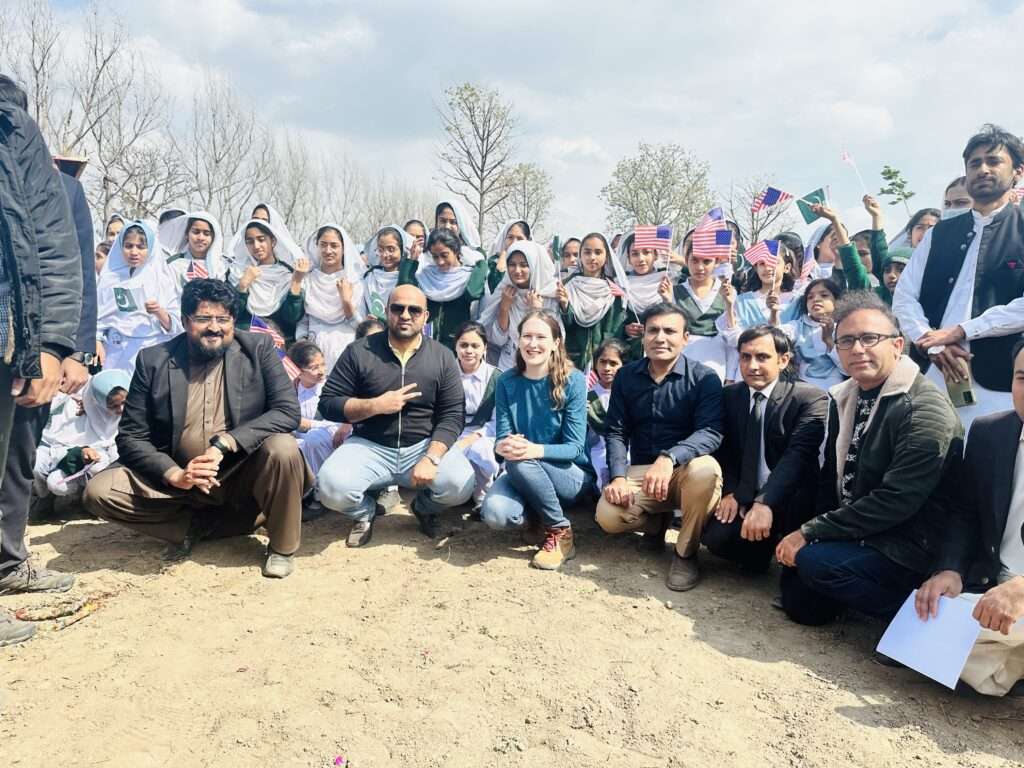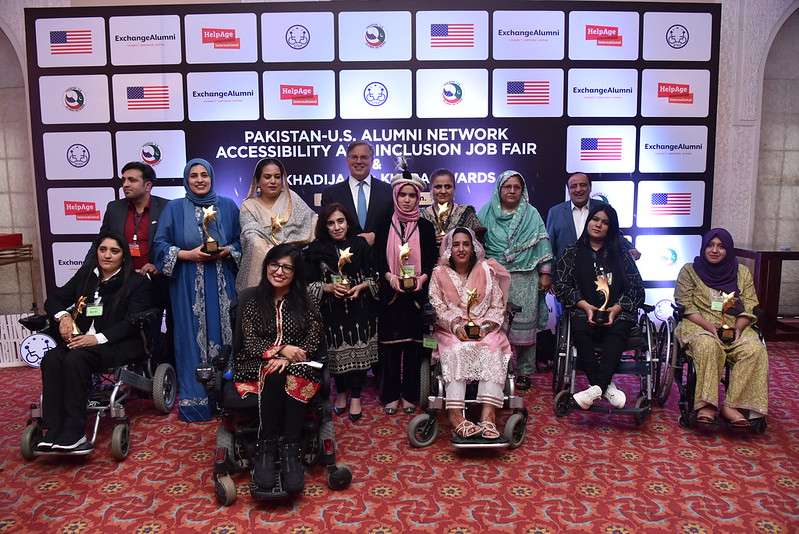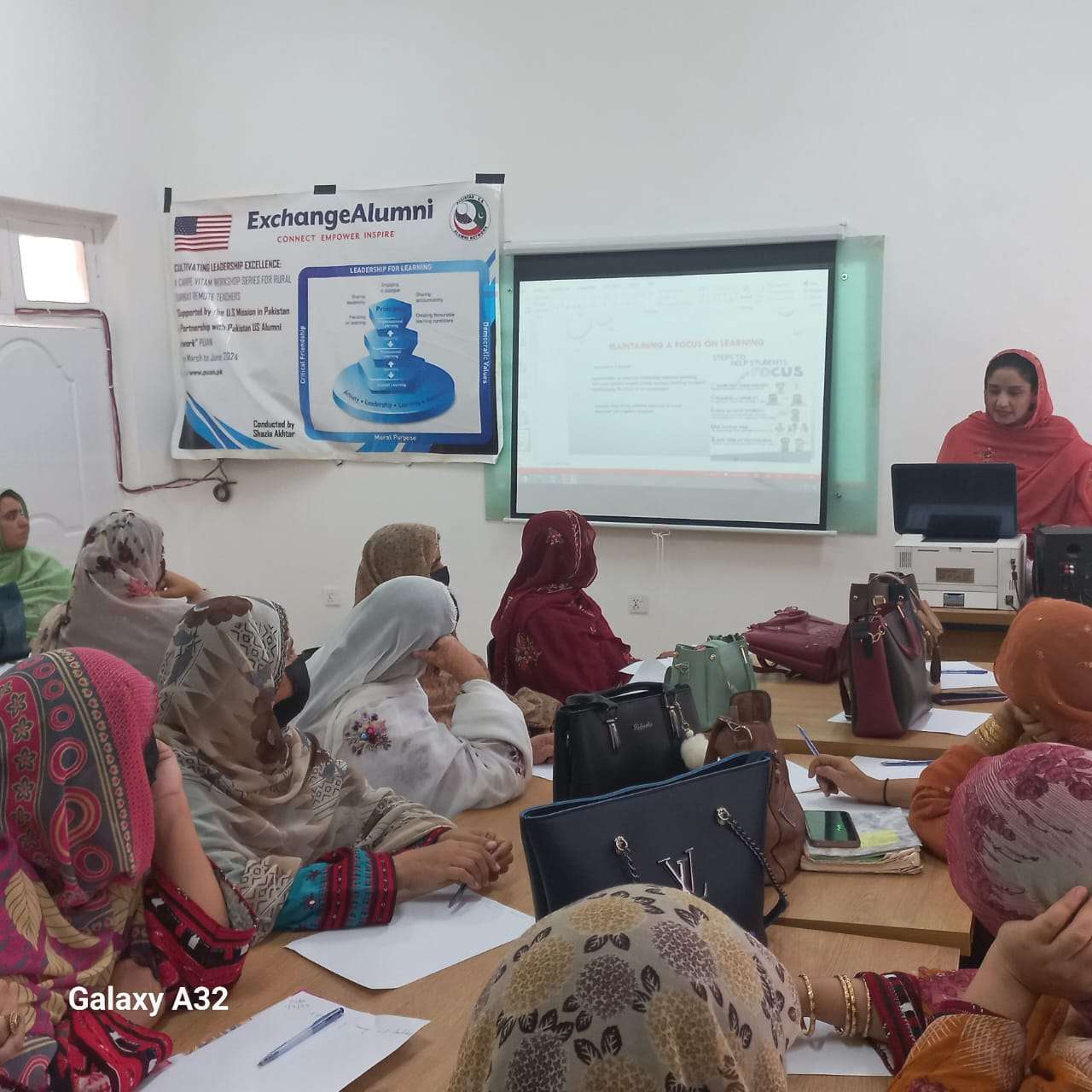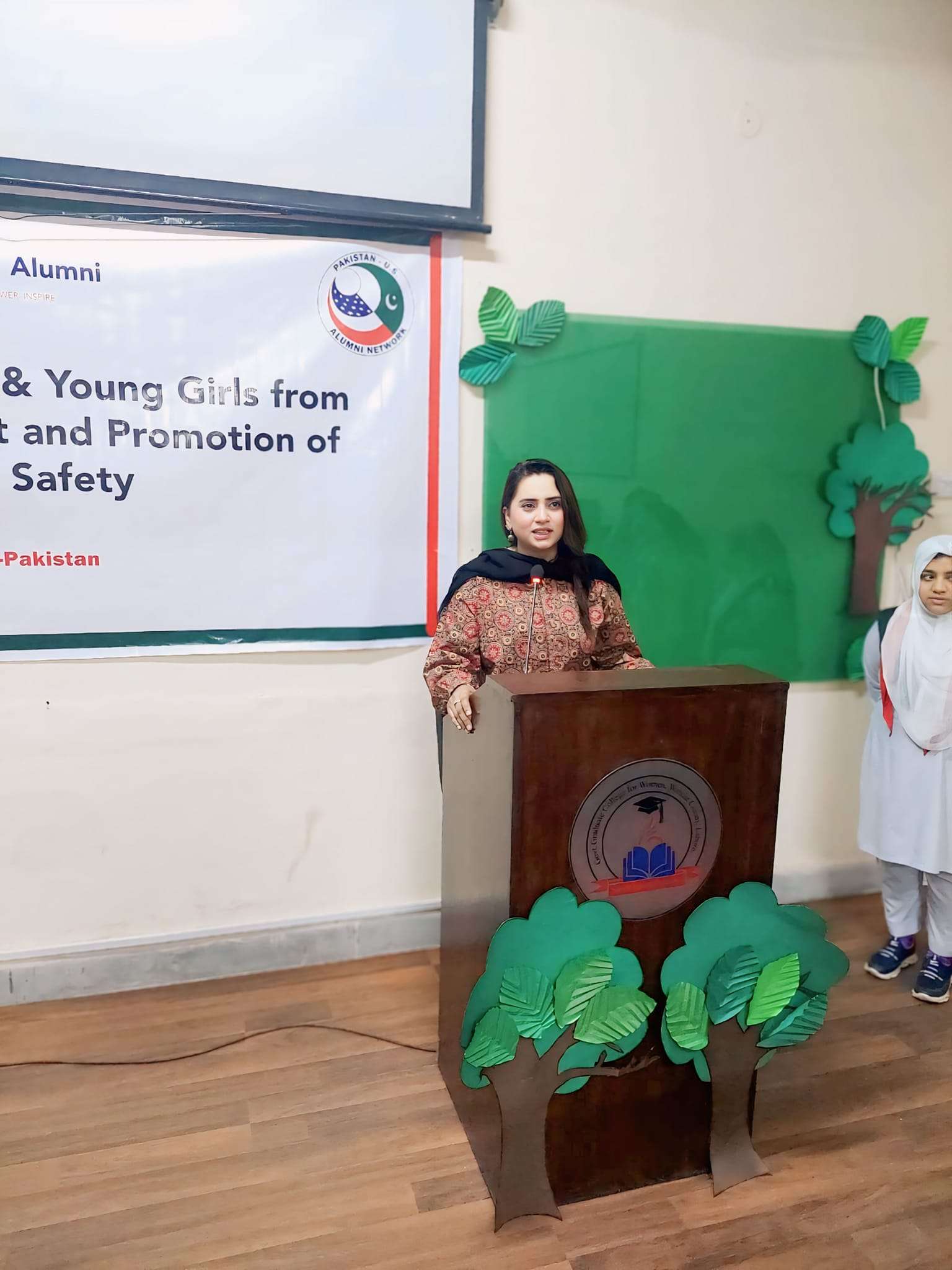Dr. Waqas Ahmad Khan, U.S-Pakistan Professional Partnership Program for Journalists (English Speaking) 2024 alumnus, stands as a beacon of environmental activism and community empowerment. His journey from a concerned villager to a relentless advocate for forest conservation culminated in a remarkable initiative funded by the Pakistan-U.S. Alumni Network (PUAN) under Alumni Small Grant (ASG).
Project Overview

Under the PUAN Alumni Small Grant (ASG), Dr. Waqas spearheaded the “PUAN Forest in Changa Manga” project, spanning from 2023 to 2024. The project’s primary objective was to revitalize a 5-acre segment of the Changa Manga Forest through extensive tree plantation. With a dual focus on environmental rejuvenation and community engagement, the initiative successfully planted 3630 native trees, substantially augmenting local biodiversity and fortifying the ecosystem.
Rationale Behind the Project
Dr. Waqas aimed to address pressing issues such as deforestation, soil erosion, and habitat loss by implementing sustainable forest management practices. Through reforestation efforts, he sought to restore the natural habitat of wildlife, improve air quality, and prevent further environmental degradation.
Significant Outcomes
The project yielded remarkable results, with a notable 90% survival rate for newly planted saplings. Beyond mere numbers, the initiative profoundly impacted both the environment and the community. By enhancing biodiversity and fostering environmental stewardship, the project laid the groundwork for sustainable forest management and inspired a sense of ownership among local residents. CG Kristen Hawkins, U.S. Consulate General Lahore, joined Dr. Khan, along with dozens of students, for a tree-planting campaign at the closing ceremony.
Testimonials from Beneficiaries
Mrs. Ayesha Malik, a local school teacher, remarked, “The PUAN Forest project in Changa Manga has been a revelation for both my students and me. Witnessing the transformation of a barren area into a thriving forest has instilled a profound respect for nature in the children.”
Mr. Ali Raza, a farmer, echoed similar sentiments, stating, “Before the tree plantation, water scarcity and soil erosion were pressing concerns for our community. The new forest has significantly improved these issues, making our lands more fertile and our water sources more stable.”
Collaboration with U.S. Mission and PUAN
Collaborating with the U.S. Mission and PUAN proved instrumental in the project’s success. The U.S. Mission’s dedication to sustainable development and PUAN’s community engagement expertise provided invaluable support, enriching the project with international best practices and local insights.
Conclusion
The PUAN Forest project stands as a testament to the transformative power of collaborative conservation efforts. Dr. Waqas’ vision, coupled with the support of PUAN and the U.S. Mission, has not only revitalized a crucial ecosystem but also empowered local communities to become stewards of their natural heritage. Together, they have set a precedent for sustainable environmental initiatives, paving the way for a greener, more resilient future.
Keep following PUAN’s blog and socials for more stories.




